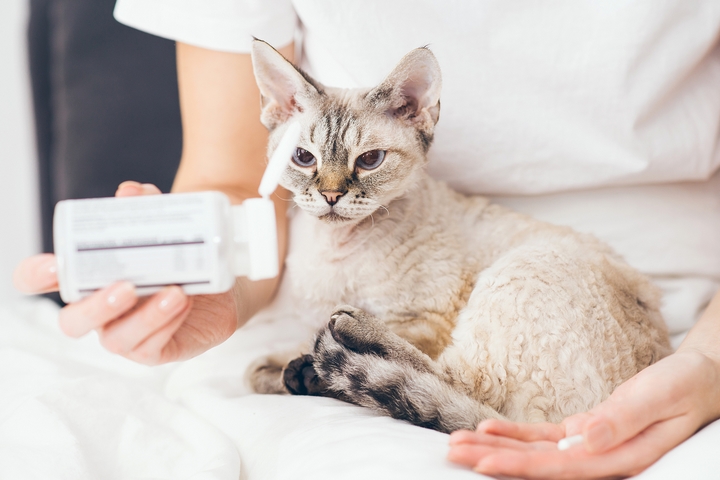What Vitamins Do Cats Need: 8 Best Vitamins for Cats
Unlike dogs, cats are natural carnivores – meaning they require a high animal protein-based diet for sustenance. Naturally, cats cannot survive on a plant-based diet because their bodies don’t process other forms of proteins.
Since their cells do not produce nutrients like vitamins and proteins, they derive required nourishment from their food. Absence of adequate nourishment results in deficiencies and health issues in cats. When sourcing for what your cat needs, consider pet vitamins and supplements that provide the required nutrient value recommended by veterinary health policies.
Here is a list of the vitamins that cats need for sustenance:
1. Vitamin A
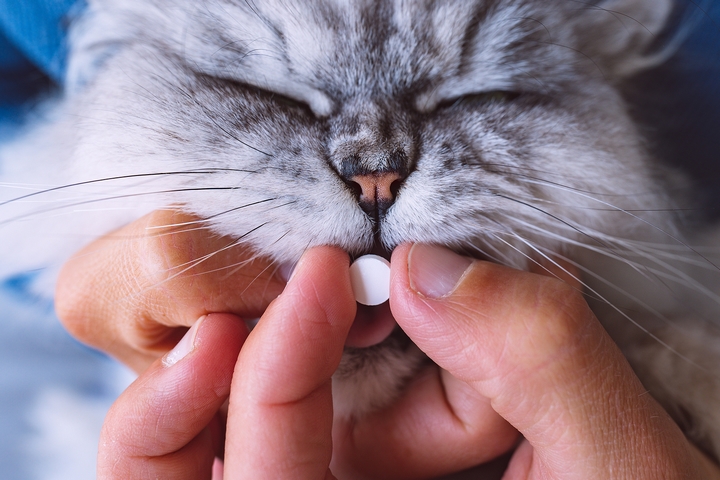
Vitamin A is one of the most important vitamins that cats need. Known as retinol, Vitamin A helps maintain healthy eyesight and coordinate the cells that make up the immune system. Since cats are nocturnal animals, they need an adequate supply of Vitamin A to boost their vision at night.
Like other mammals, cats cannot produce retinol naturally. Since the vitamins stores in the liver, cats can experience health issues from excessive intake.
While retinol is more prominent in plant-based foods like carrots and spinach, opt for animal sources like milk and liver in your cat’s diet.
2. Vitamin B12
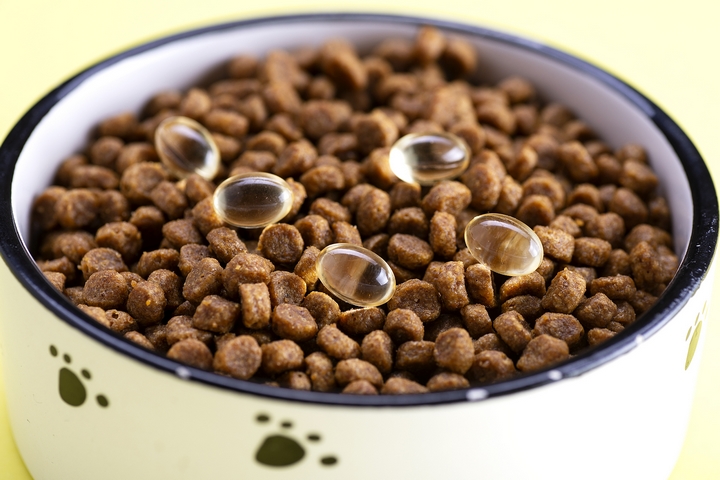
Vitamin B12 or Cobalamin plays a vital role in your cat’s nervous and digestive systems. This vitamin helps prevent lethargy and provides bone and nervous system support. If your cat experiences symptoms like vomiting, loss of appetite, and weakness, there’s a possibility of a Vitamin B12 deficiency issue.
As with Vitamin A, cat bodies cannot synthesize cobalamin, so they absorb the nutrient from their food. You can also consult your vet for Vitamin B12 supplements to use in case of a deficiency-related illness. Otherwise, feed your cat meals like meat, fish, and eggs for their dose of vitamin B12.
3. Thiamine (Vitamin B1)
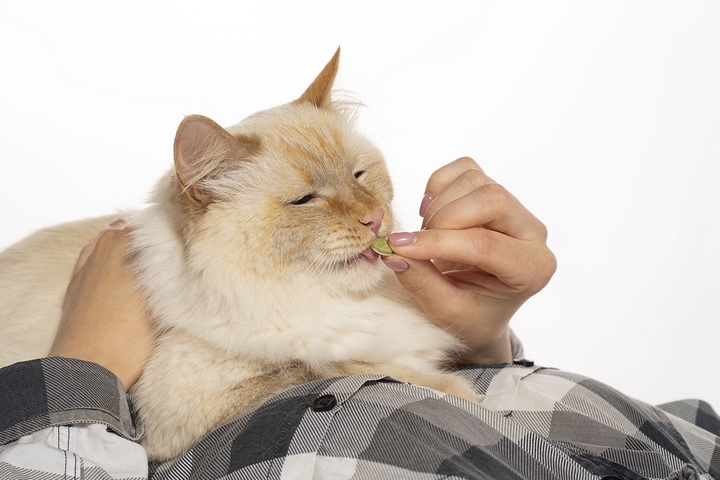
Although cats don’t consume traditional carbohydrates, they still need to eat them in limited quantities to thrive. Beyond fatty foods, cats also derive energy from carb-loaded grains like rice and wheat. Many cat food companies also incorporate these grains into their products.
Since cats consume carbohydrates, their digestive systems must break down the elements to supply energy. Vitamin B1 or Thiamine drives carbohydrate metabolism and nerve transmission. Natural sources of thiamine include egg yolk, turkey meat, chicken, duck, and liver.
4. Riboflavin (Vitamin B2)
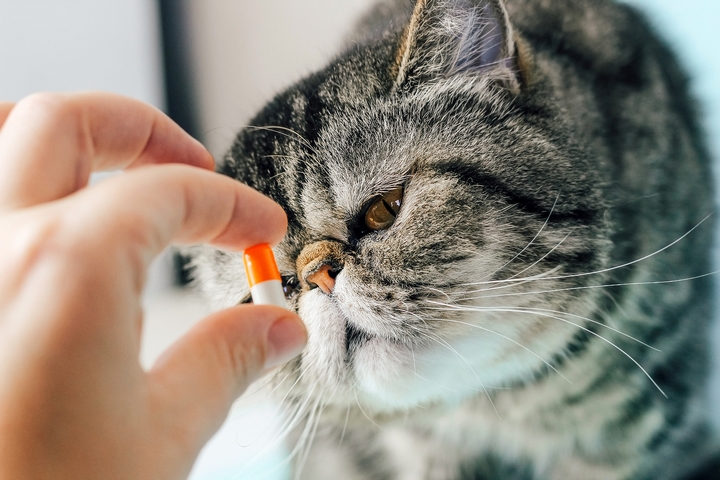
Like Thiamine, Vitamin B2 also helps synthesize carbohydrates in cats. Riboflavin helps break down fats and also drives oxygen supply and absorption. This vitamin contributes to your cat’s fur health and quality. A Vitamin B2 deficiency results in symptoms like alopecia, weight loss, and death in extreme cases.
Riboflavin occurs naturally in food like muscle, liver, eggs, and pork. For the best source, dairy products like milk work since there are no recorded effects of excess riboflavin consumption in cats.
5. Niacin (Vitamin B3)
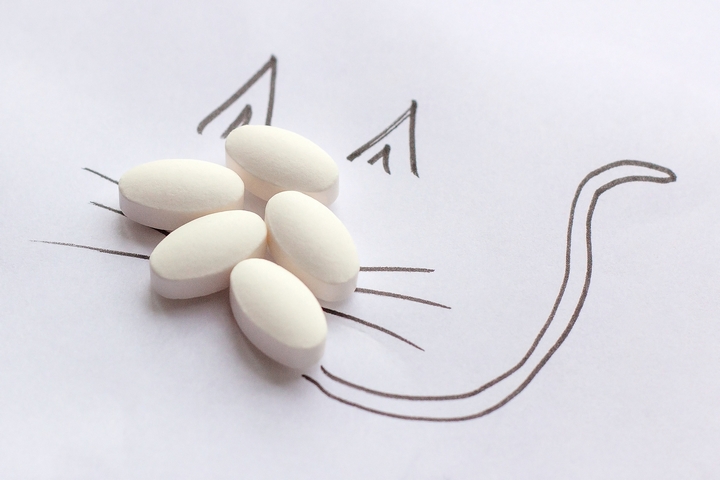
Since niacin helps drive energy supply in cats, their body excretes the vitamin rapidly in the urine. Similar to other entries on this list, cats cannot produce niacin in their cells. Existing in two versions, Vitamin B3 contributes to the metabolism of glucose, proteins, and fatty acids, through niacinamide and nicotinamide.
Vitamin B3 deficiency manifests in symptoms like weight loss, black tongue, raised body temperature, and foul-smelling drool. Natural sources of niacin include beans, poultry, fish, and meat. Beyond dietary functions, both versions of Vitamin B3 play a vital role in treating conditions like skin inflammation and chronic kidney disease.
6. Vitamin D
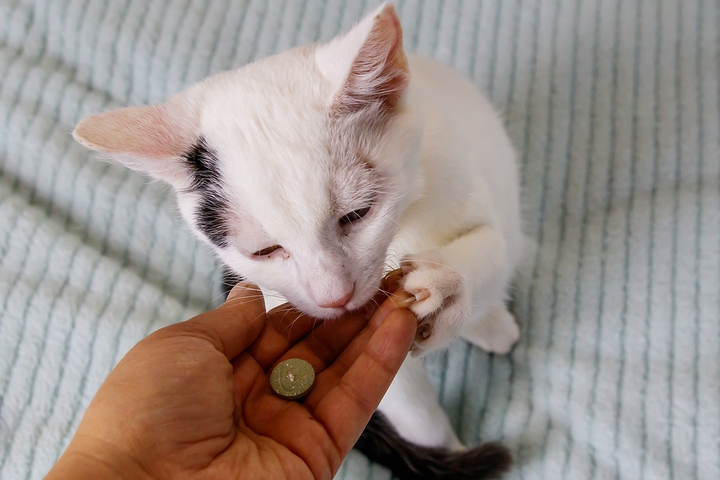
Vitamin D is responsible for retaining calcium and phosphorus in cats. Unlike humans, they don’t derive the vitamin from the sun. Their bodies also do not produce a sufficient amount. Therefore, you must provide an adequate supplement for this vitamin in meals. Examples of foods with rich sources of Vitamin D include egg yolks, liver, and tuna. Vitamin D deficiency causes symptoms like heart failure and rickets.
Compared to water-soluble vitamins like Vitamins A and B, Vitamin D is fat-soluble. This means excess consumption can lead to Vitamin D poisoning triggered by calcium imbalance. Symptoms of poisoning include dehydration, weakness, and internal bleeding.
7. Pyridoxine (Vitamin B6)
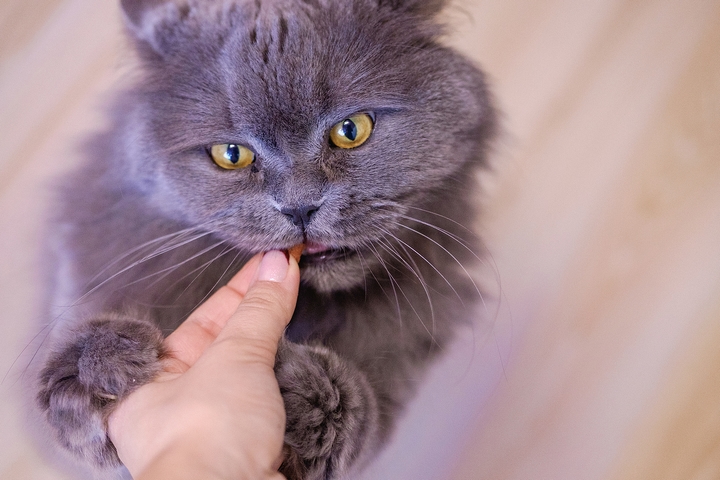
Another water-soluble vitamin, pyridoxine comprises three separate compounds. While Vitamin B6 occurs in natural foods, many cat owners also turn to supplements for their pets’ sustenance. Otherwise, you’ll find pyridoxine in protein-rich foods like dairy, kidney, tuna, and poultry.
Beyond nutrient metabolism, Vitamin B6 also helps boost immune system function by driving the production of red blood cells. Some symptoms of deficiency include anemia, stunted growth, seizures, and renal failure.
8. Vitamin E
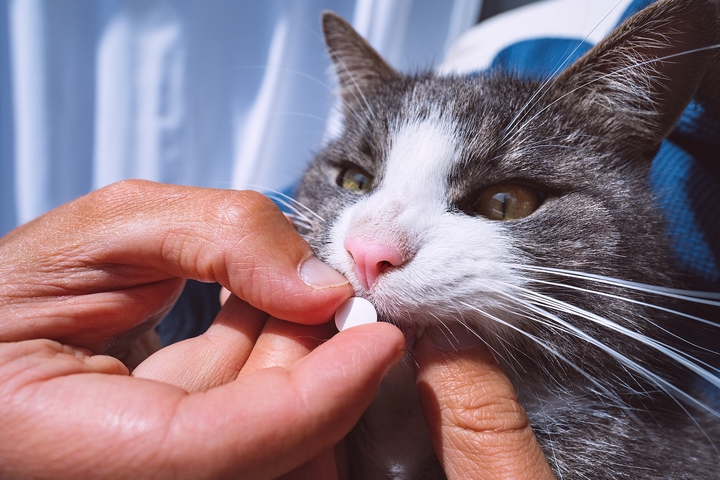
Vitamin E plays a protective role in your cat’s health. The oxidizing vitamin protects your cat from heart failure, sterility, and damage to the eyes. Signs of deficiency can cause liver failure and intestinal bleeding.
To prevent this from happening, ensure your cat derives their required daily 30 IU intake of Vitamin E from supplements or foods like liver and animal fat.

